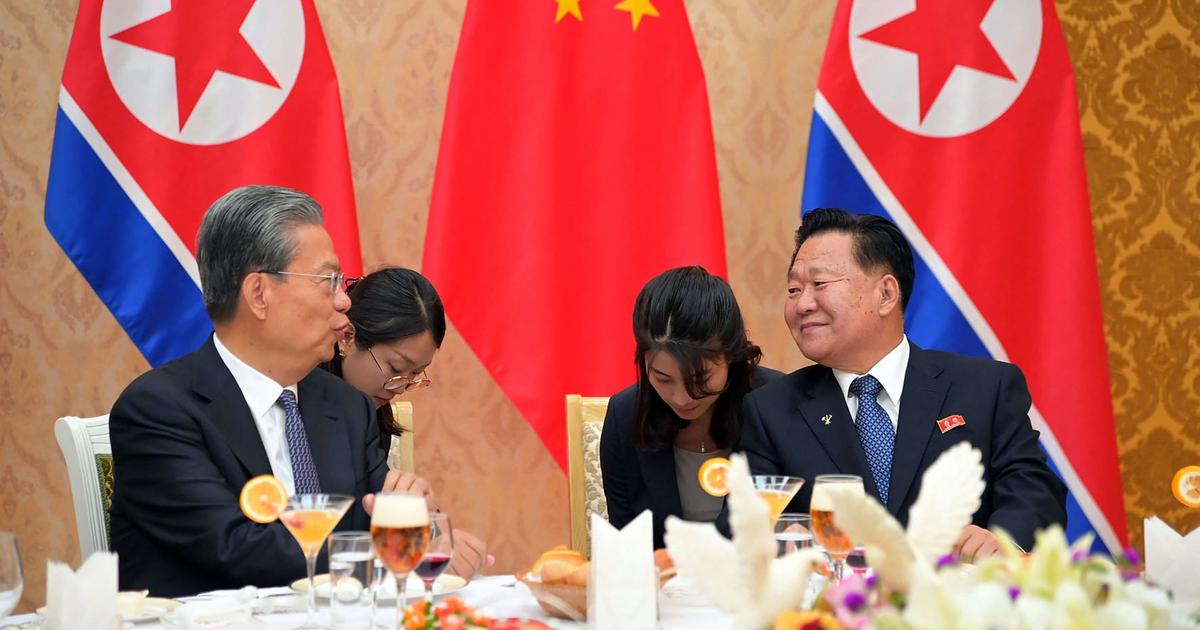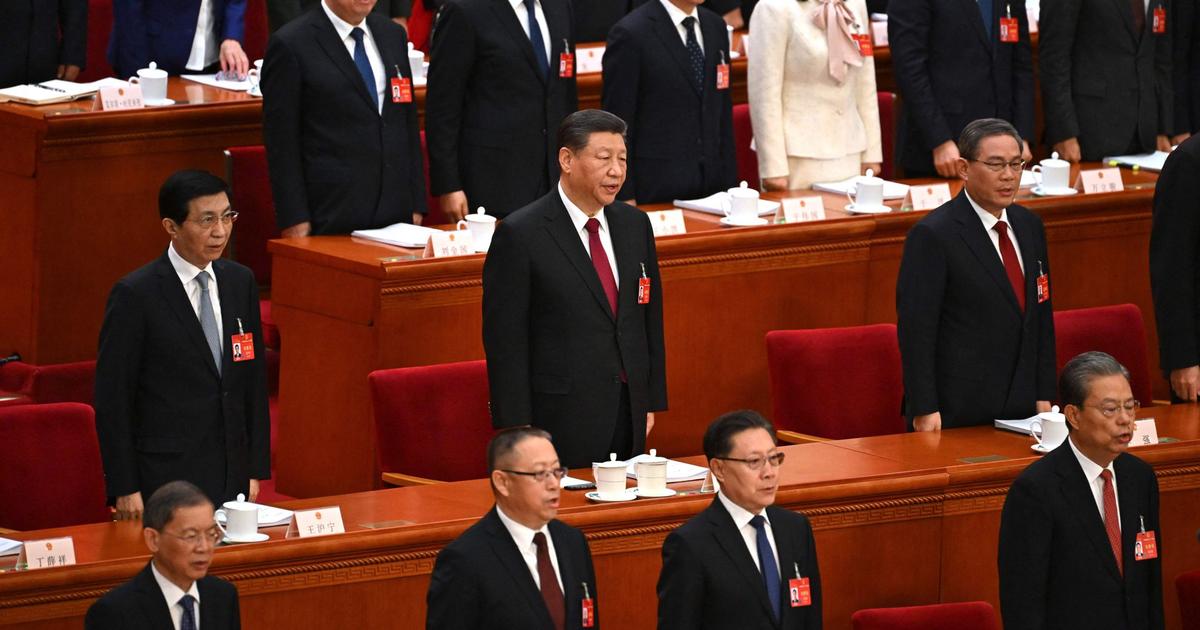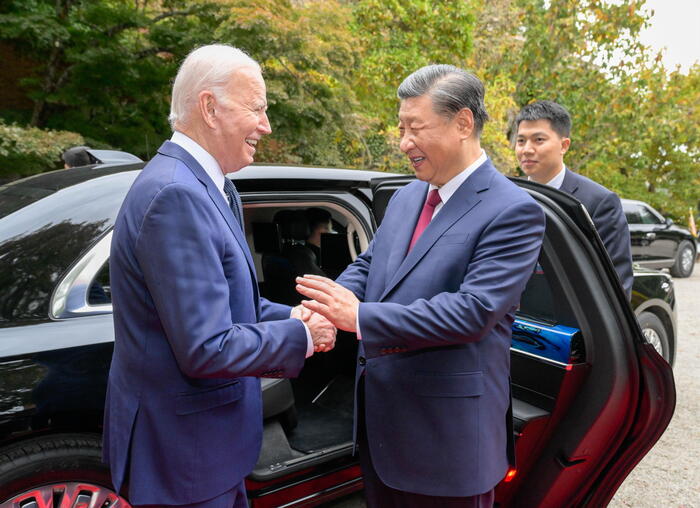What is the problem of Hong Kong?
If it is said that the turmoil against the amendment bill in 2019 exposed "the contradiction between the enemy and ourselves", then Hong Kong, which is going from "from chaos to governance" to "from governance to prosperity", must face the "contradictions among the people" - the country President Xi Jinping's important speech on July 1 called for Hong Kong to "actively and prudently push forward reforms and break down the barriers of solidified interests".
But what is unexpected is that as soon as Xi Jinping's words fell, some vested interest groups who kept saying "learning the spirit of the President's speech" were arrogant and disobedient. It is reported that they are currently actively lobbying the newly-appointed Chief Executive Li Jiachao to overthrow the previous government and partially reclaim the Fanling Golf Course32 hectares of land for the construction of public housing.
Not only are they blatantly ignoring Xi Jinping's instructions to Hong Kong, but they are simply "perfectly showing" how the entrenched interests can hinder Hong Kong's reforms.
In his July 1st speech, President Xi Jinping put forward the governance requirements of "promoting reforms actively and prudently and breaking down the barriers of solidified interests".
But what is unexpected is that as soon as Xi Jinping's words fell, some vested interest groups who kept saying "learning from the spirit of the chairman's speech" went against the grain.
(Joint interview/Associated Press)
The key to the governance of the SAR lies in the land reform
. The elites who govern Hong Kong pretend not to understand
After Xi Jinping came to Hong Kong to attend the inauguration ceremony of the sixth SAR government on July 1 this year against all odds and delivered an important speech, many people noticed the never-before-seen keywords such as "active reform" and "breaking down barriers", and they also felt that The central government "is different" and "requires Hong Kong to do real things", but specifically - what is reform, why reform, how to reform, what is the entrenched interest barrier, why it should be broken, how should it be broken, etc. Too many Hong Kong rulers have enriched the discussion.
This is inevitably confusing. Xi Jinping has already started straight to the point. Don't they still understand it?
However, some Hong Kong rulers may just "pretend not to understand", because many of them are vested interests themselves, and they are deeply afraid that they will be the targets of reform and elimination.
The problem is that, on the one hand, they hide their ears and steal the bell, and on the other hand, they continue to put their personal interests above the interests of all Hong Kong citizens.
This not only blatantly ignores Xi Jinping's words, but also perfectly demonstrates how the entrenched interests can hinder Hong Kong's reform.
Compared with the veiled interests of Hong Kong's vested interests, some mainland scholars seem to be more outspoken. For example, Tian Feilong, director of the National Hong Kong and Macau Research Association and associate professor of the Law School of Beihang University, pointed out that "breaking the barriers to solidifying interests" covers two aspects: First, Hong Kong real estate The binding of hegemony to housing justice and social distribution requires the SAR government to fight back against the real estate hegemony through social justice. Second, the constraints of industrial transformation difficulties on economic development and new growth drivers require the SAR government to support emerging industries.
It is not difficult to see that these two aspects all point to the land issue; that is to say, the key to the reform of SAR governance is land reform; to be more specific, it is the reform of systems or mechanisms such as land supply and demand, use, planning and supervision.
The essence of "reform" is the reconstruction of "interest relationship" and the reorganization of "interest structure"; "vested interest" refers to the relevant groups that obtain huge benefits through means and methods of unfair competition, with the help of public power and policy resources "Fences of solidified interests" are defensive barriers set up to ensure the lasting existence of vested interests, which have basically formed a stubborn disease of the entire system. For the general public, the barriers are the shackles and barriers for them to obtain benefits.
Taking Fanling Golf Course as an example, it has been widely discussed in 2018 and still cannot be implemented. The problem is due to the solidification of interests at two levels. First, it is the original user group of the golf course, that is, a very small number of owners. Expensive members and their golfers believe that most of them are either rich or expensive; second, the main forces currently leading land development, including decision-making officials, real estate businessmen, political party representatives, rural factions, and affected residents, but the latter Its influence depends on how much the SAR government attaches importance to public opinion.
In 2018, when the then Chief Executive Carrie Lam launched the "Land Debate", 66 leased land for private amusement parks became the focus of social discussion. Among them, the call for the resumption of the Fanling Golf Course leased by the Hong Kong Golf Club was the most popular.
(file picture)
Continued pressure from vested interest groups to reclaim
land and build houses
How do these entrenched interests impede Hong Kong's reforms?
We have to go back to 2018 - during the "land debate" initiated by the then Chief Executive Carrie Lam, 66 leased land for private amusement parks became the focus of social discussion because they covered a huge area, only charged nominal rent for a long time, and had limited services. Small number of members.
Among them, the demand for the resumption of the Fanling Golf Course leased by the Hong Kong Golf Club is the highest, because the lease of the land will expire on August 31, 2020, and it covers an area of 172 hectares but only requires a rent of 1,000 yuan per year. It is only available to more than 2,000 members with expensive memberships, including the then and current non-official members of the Executive Council, Yip Liu Shuyi, Yam Zhigang, Lin Jianfeng, Tang Jiahua, etc., and the current Deputy Secretary for Home Affairs and Youth Affairs, Leung Hong-Ching, once served as the president. post until he takes office.
The land supply is extremely tight, and the SAR government is fully justified to fully reclaim the stadium.
"Hong Kong 01" commissioned a survey by the University of Hong Kong's Public Opinion Research Project at the time, showing that 80% of the respondents supported the return of the stadium.
At the same time, the voice of opposition to land resumption should not be underestimated. It is reported that some people "come to Beijing" because of their wealth and power, urging the central government to intervene.
Afterwards, I don’t know where the contribution was made. As the “Land Debate” came to an end, the authorities sang the opposite. In February 2019, they announced to extend the lease of the stadium until August 31, 2023, and then partially reclaim the 32 east of Fanjin Highway. Hectares to build public housing, and the remaining 140 hectares will continue to be leased at a nominal land price until June 30, 2027. After that, the land price will not be waived, and it is expected to collect tens of millions of yuan each year.
However, until the previous government left office, the authorities continued to talk back and forth about the actual number of houses built on 32 hectares, ranging from the 4,600 units in the initial document to the over 10,000 units promised by the then Secretary for Development and the current Deputy Financial Secretary, Wong Wai Lun. ; When the Civil Engineering and Development Department submits the documents to the North District Council on May 20, the building area has been reduced from 32 hectares to 9.5 hectares, but the plot ratio will be increased. It is expected that 12,000 units will be completed in 2029, accommodating 33,600 people. .
Procrastination, the result is really staggering - if there is a law, there is a law, and there is a consensus, the SAR government can give up all land resumption, and even shrink the building area.
It is widely questioned by the outside world that the previous government "gives in" to the business dignitaries. After all, the voices of opposition mainly come from prominent politicians and businessmen with membership. The last Chief Executive Carrie Lam may have been "pressured by the dignitaries" to backtrack.
The question is, isn't the pressure of Hong Kong citizens and the central government not pressure?
Is the housing demand of the public not urgent enough?
Or is the central government's directive to ask the SAR government to solve the housing dilemma not clear enough?
What was the last government afraid of?
Is the business world as evil as a "flood beast", or are those officials treating themselves as "toothless tigers"?
The dissatisfaction and incomprehension among the people eased slightly until the SAR government changed its term.
Because Li Jiachao, who was born in the disciplined service, is not considered to be involved in too many interests; and since he was elected to take office, he has indeed shown the enthusiasm and responsibility of "serving the society", and also has the awareness and vision of "renovating and improving", and The courage and determination of "sit words and act"; until Xi Jinping's important speech on July 1st, he pointed out the "SAR governance reform" for the first time, and clearly required the elites elected under the principle of "patriots governing Hong Kong" to improve their governance level, enhance their development momentum, To solve the problems of people's livelihood, maintain harmony and stability, and propose that "the central government will fully support Hong Kong to actively and steadily promote reforms, break down the barriers of interests, and fully unleash the huge creativity and development vitality of Hong Kong society", and the new government headed by Li Jiachao was given the gift of The mission and high aspirations of "Reforming Hong Kong".
The sixth SAR government headed by Li Jiachao was entrusted with the mission and high expectations of "reforming Hong Kong".
He must adhere to the values and beliefs of fairness and justice, and demonstrate the courage to govern.
(Joint interview/Associated Press)
Ignore Xi Jinping, pressure Li Jiachao to
demonstrate interests, solidify barriers and hinder reform
As we all know, apart from the urgent need for land, the resumption of the Fanling Golf Course is also an important political gesture to show that the SAR government is willing to walk with the people and relieve their difficulties.
Unexpectedly, as soon as Xi Jinping's voice fell, some vested interest groups who kept saying "learning the spirit of the chairman's speech" would go against the grain. against public opinion.
In just over a month, there have been many rumors in the political circles that the rural faction and the economic and democratic alliance have made frequent moves-first, the legitimacy of reclaiming the stadium has been distorted into a product of "populism" and "compromising with the opposition", for example, in North Korea. At the District Council, the vice chairman of the North District Council, Li Guanhong, who is also the chairman of the Sha Tau Kok Rural Committee, pointed out the omissions in the plan, questioned whether the authorities were "greeting the opposition", and threatened that "the four townships will definitely attack them"; and later released the golf course to the public. EIA reports with great ecological value, for example, the Hong Kong Golf Club commissioned another consultant to counter the government's original EIA report, pointing out that the authorities underestimated the conservation value of moths, bats and other animals.
Furthermore, some people resorted to "sluggish words" and sloppy mud. For example, the New Territories North Member of the Legislative Council of the Democratic Alliance for Betterment of Hong Kong, Lau Kwok-hsun, suggested that "the construction of public housing will increase the population and cause traffic congestion" to be combined with the "northern metropolitan area". planning.
From the perspective of "interest relationship", these voices all come from the "vested interest groups" and "confined interests" of Fanling Golf Course; from the perspective of "interest structure", these actions all point to the same result, which is to prompt Li Jiachao to overthrow the land resumption. The decision to build a house is to maintain the original function of the Fanling Golf Course as a "playground for the powerful", that is, to maintain the original dominant power of land development determined by the powerful - having the right to decide on the supply and demand, use, planning and supervision of land.
The housing problem is serious, and grassroots citizens are in dire straits.
Because fundamentalist capitalism in Hong Kong has developed to its extremes, it is inevitable that decision-making elites will misunderstand the role and role of the government in the development of the market. As a result, a small group of vested interests will dominate, and the vast majority of interests cannot be properly protected.
(File photo/Photo by Zheng Jianfeng)
Regaining the Dominance of Land Development and
Seeking to Maximize Public Interest
It stands to reason that the SAR government absolutely has the leading power in the development of Hong Kong's land, because in addition to the St. John's Cathedral land on Government Hill in Central, which was approved as "freehold" by the British Hong Kong government in 1847, according to the "Basic Law", after the handover All land in Hong Kong is owned by the state, and the SAR government is authorized by the central government to manage, use, develop and lease these lands on its own, and can lease or grant land to individuals or organizations for a certain period of time for the development of certain uses.
Therefore, the government has the responsibility to fully undertake the supply and planning of land. In particular, some lands that have not been developed and put to good use should be re-planned by the authorities when the "lease agreement expires" or when there is an urgent need.
It is a pity that the Hong Kong government has handed over the dominance of land development. The dispute over the land resumption of the Fanling Golf Course is a stark case. It clearly shows that the SAR government clearly owns the land that can be used to build houses and develop industries, but it has never been able to improve it. used in contradictory situations.
The crux of the matter is that it is obstructed by the solidified barriers of interests.
But to be fair, the Hong Kong government gradually ceded the right to speak on land development long before the handover, because Hong Kong’s fundamental capitalism has developed to its extremes, which inevitably leads the decision-making elite to misunderstand the government’s role and role in market development, and as a result, a small group of vested Interest groups dominate, so it is impossible to properly protect the interests of the vast majority.
To break this pattern of benefit distribution, the key is that the government must re-understand the attributes and functions of land resources, as well as re-understand its own existence and governance responsibilities.
The reform of the land resource allocation mechanism is definitely a "breakthrough".
First, land resources have "public attributes", and the government can make good use of land as an "equalizer" when wealth distribution fails, allowing everyone to share value results fairly; secondly, land resources can have a "leverage effect" on social and economic policies, The government can take this to enhance the actual effect of SAR governance, thereby gradually resolving deep-seated conflicts.
Li Jiachao's government can only truly bridge different groups and independently control the allocation of resources according to social needs, economic development, urban renewal, etc. The economic lifeline, re-creating industrial kinetic energy, so as to maximize public interests.
Therefore, in the dispute over the development of Fanling Golf Course, Li Jiachao can only promote reforms worthy of the whole Hong Kong people by adhering to the values and beliefs of fairness and justice and showing the courage to act and act daringly!






/cloudfront-eu-central-1.images.arcpublishing.com/prisa/LEM52JP6LEADMSIBFMVD2O4ZO4.jpg)
/cloudfront-eu-central-1.images.arcpublishing.com/prisa/CIWYA32EL2HWMI7DWEZGSK5F2U.jpg)
